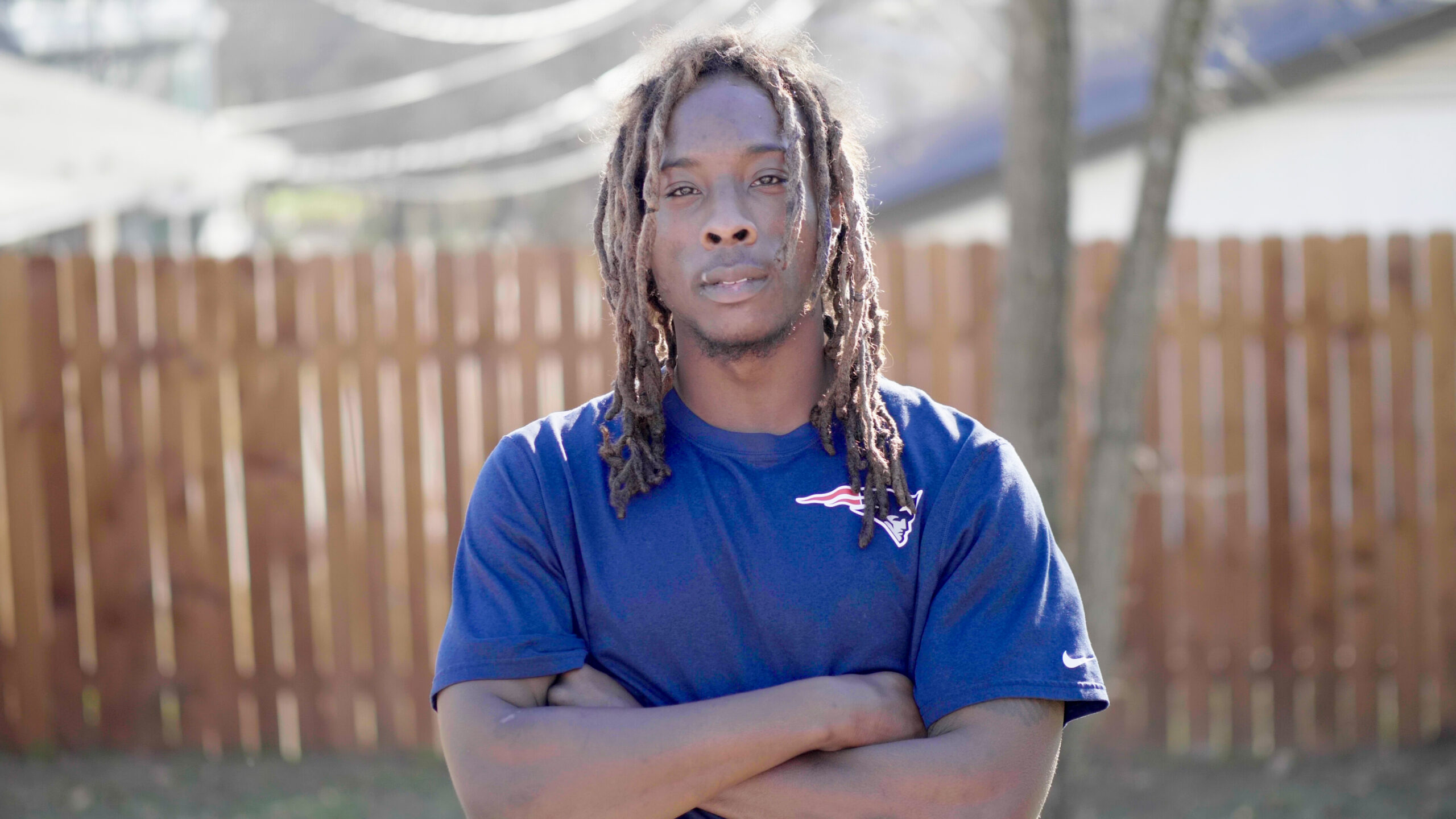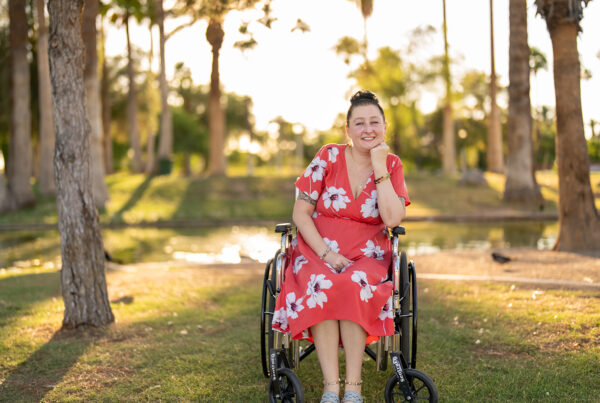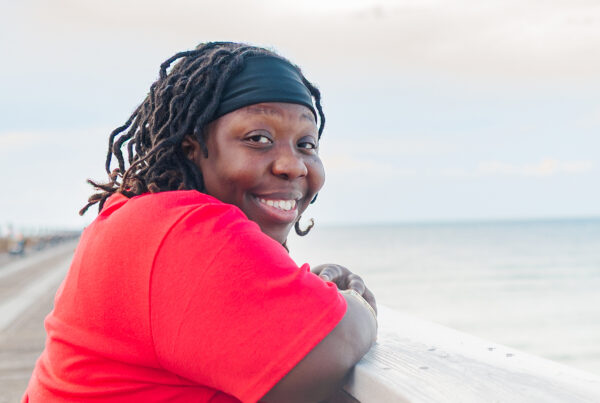Video Transcript
After I got incarcerated it went from light to dark. It’s like everything just became frozen with time and you know you just feel real lonely. It was horrible not having the funds to get out, and knowing that, you know it just sucks.
My name is Kamren. I am 28 years old. I’m originally from Rhode Island. I’ve been living in Texas for a little bit over two decades, 21 years. What I like about living in Austin is how friendly people are. I like the opportunity it offers. It’s a growing city so it’s a great place to come if you want to do business and things like that. Um places that I like to visit in Austin, Town Lake is a good place. If you want to go jog and exercise and stuff like that, take your kids to the park. While I was in jail the one thing that I thought about most and always was on my mind was my son. You know just not being around when he needs me and not, you know being a male figure in his life. I did not feel safe while the pandemic was going on outside. For one you got a lot of people coming off the streets into there, you know, and then a lot of the guards they coming in and out, you don’t know who they’re interacting with or how many group of people that have been around so, it was just very very difficult to, to even you know communicate or socialize in there because it’s like you don’t want to get the COVID.
How I feel about COVID-19 is, um it, it’s definitely a life changer. It’s um, it slowed down a lot of like money businesses that are going on. It affected a lot of people’s lives. When the pandemic happened, you know um, I moved out and I started living in hotels. You know my mom took after my son for a little bit while you know I get stuff in order but, it’s a lot harder cause, for one I lost my ID, and um, you know my social from going from hotel to hotel. So I can’t just go up to the DPS and get another one you know. I gotta schedule an appointment and I think my appointment is not til like another two months you know it’s crazy. So the housing you know it’s, it sucks, cause you know sometimes we have to go a night of staying in the car you know what I’m saying because it won’t even be not because of the lack of funds it can be like they require a certain type of debit card, like a um, I remember one hotel told us that they needed a major credit card cause, we’re like, we have a prepaid card, and like “no you need a major” like a um, Discovery or something like that and we didn’t have that.
It sucks but you know you just got to like try to survive every day type. That’s why I try to keep it positive so even though we’re in the negative times, you know two negatives don’t make a right so. Working with The Bail Project was awesome. It was great. It was you know they’re very fast very genuine people you know. Soon the the day we connected with them and called them I was out the next day so, it was definitely a blessing. You know I know one of the Bail Disruptors by the name of Joe, I called him I was like um, you think uh I know you guys helped me out a lot already but I was seeing if maybe you could give me like a, a day or two at a hotel, you know I had no money. Ended up sending a gift card that same day.
What I feel about the cash bail system, about people not having money that can’t bond out, I feel like it’s unconstitutional. It’s not right because it’s like um the person is innocent before proven guilty so if I’m innocent, why do I have to pay to get out of jail if I don’t have the funds to get out of jail, you know? So I just think that’s it’s just a whole, you know, uh scheme that the system has to make people come out of more money.
I feel like The Bail Project expanding into different states and cities is awesome thing because it’s um, it’s showing positivity towards you know and it shows that like you know the people are coming together and connecting in a positive way going against the system that’s trying to you know crash us down you know. And it’ll just bring a lot more great spirit into the world.
Racial disparities exist in virtually every decision-making process of the criminal justice system. Across the US, Black men are detained 50% more often than white men. Additionally, people of color tend to have bail set twice as high as white defendants, even though they are less likely to be able to afford it. When Kamren, a Black man living in Austin, was held pretrial at the Travis County Jail, he worried about the financial and emotional toll his incarceration would take on his son if he wasn’t able to post bail.
Thank you for engaging with our content. People like you make a better world possible – a world where justice is not determined by someone’s wealth. The Bail Project is not only an immediate lifeline for people held on unaffordable cash bail, but a growing megaphone for public education and social change. If you have the means and found value in our content, please consider becoming a donor today.












